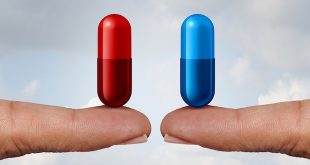What is the issue for eating grapefruit with certain medications?
Grapefruit and grapefruit juice have been associated with a number of drug interactions. According to a review published in the Canadian Medical Association Journal, there are approximately 85 different medication interactions with grapefruit. However, the number of drugs that can be risky when taken with grapefruit will likely continue to rise; this is because more and more new medications and chemical formulations are being introduced by pharmaceutical companies.
Why does grapefruit interact with some medications? Here’s what happens: Grapefruit contains furanocoumarins, a type of organic chemical compound that inhibits the efficacy of an important enzyme. This enzyme normally helps your body process the medication you take, balancing out how much of it goes into your bloodstream. Because furanocoumarins hinder this enzyme, larger amounts of the drug persist in your bloodstream and medication levels can grow toxic in the body.
It’s not just grapefruit, either. Other citrus fruits such as Seville oranges (often used in marmalade), limes and pomelos also contain furanocoumarins, but none of these have been as widely studied as grapefruit.
What does this mean for people with diabetes?
Currently, two drugs used to treat diabetes – repaglinide (GlucoNorm®) and saxagliptin (Onglyza®) – have been shown to interact with grapefruit. Their respective product monographs state the plasma concentrations of the drug rose after grapefruit was consumed. If you are taking either of these medications, you should speak with your healthcare team about whether and when you should consume grapefruit.
Other drugs that people with diabetes may be taking also have some interactivity with grapefruit. Since people with type 2 diabetes are at increased risk of heart disease (including high cholesterol, high blood pressure and atrial fibrillation), it’s important to know whether you should avoid eating grapefruit or drinking grapefruit juice, in the event that you’re taking medications for any of these conditions.
For example, if you drink a lot of grapefruit juice while taking certain statin drugs to lower cholesterol, too much of the drug may stay in your body, increasing your risk for liver damage and muscle breakdown that can lead to kidney failure.
Those who are at the greatest risk are older people who use more prescriptions and buy more grapefruit.
Other medications that interact with grapefruit
Here are some of the common medications that people with diabetes and heart disease may take, which interact negatively with grapefruit:
- Statins (cholesterol drugs): lovastatin (Mevacor®), atorvastatin (Lipitor®), simvastatin (Zocor®), simvastatin/ezetimibe combination (Vytorin®)
- Calcium channel blockers (blood pressure drugs): nimodipine (Nimotop®), felodipine (Nitrendipine®, Plendil®), nisoldipine (Sular®), nicardipine (Cardene®), verapamil (Verelan®)
- Antiarrhythmics (atrial fibrillation drugs): amiodarone (Cordarone®), disopyramide (Norpace®)
- Erectile dysfunction drugs: sildenafil (Viagra®)
Other drugs that interact with grapefruit include:
- Psychiatric medications: buspirone (BuSpar®), triazolam (Halcion®), carbamazepine (Tegretol), diazepam (Valium®), midazolam (Versed®), sertraline (Zoloft®)
- Pain medications: Methadone
You can view a comprehensive list of medications that interact with grapefruit here.
Be sure to speak with your doctor or pharmacist about your drug regimen, and if you’re taking any medications that may interact with grapefruit.
 Diabetes Care Community Learn, connect and care
Diabetes Care Community Learn, connect and care



